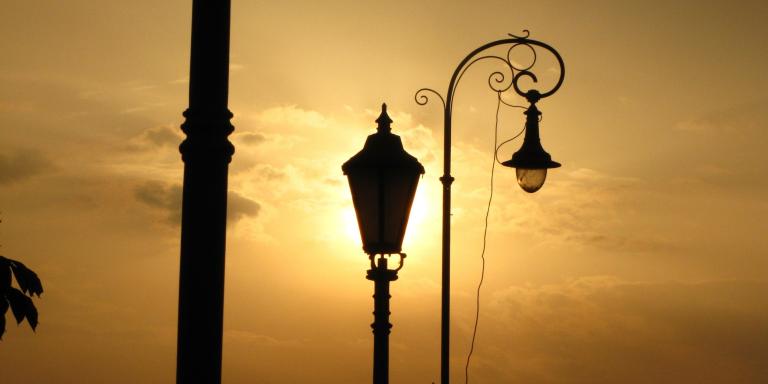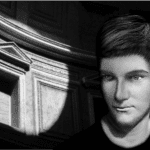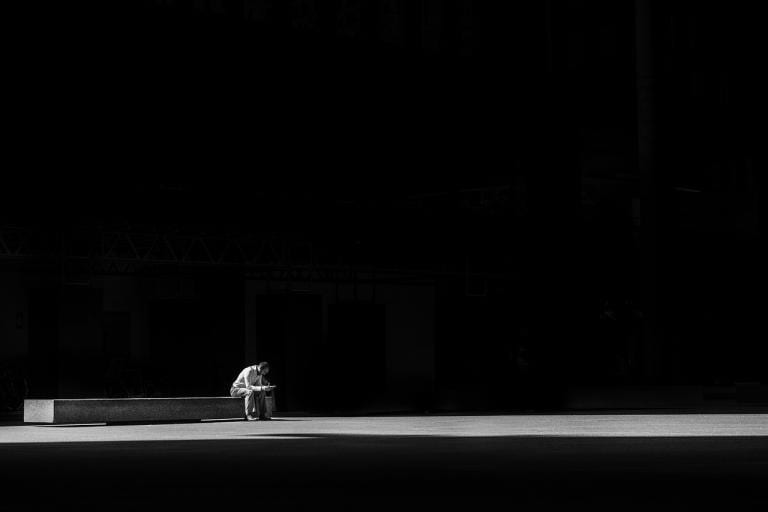Gaslighting is one of those terms that I see cropping up occasionally on the internet, but until yesterday I had only a very vague notion of what it meant. (By vague, I mean I knew it was something that women who were stalked or abused often complained about, but that was it.) So I finally decided that I actually wanted to know what it meant and I looked it up.
As I read through several articles, a slow sense of realization began to dawn on me. The descriptions were eerily familiar: warped sense of reality, self-isolation, feeling like you’re crazy or bad, inability to trust your own judgement, constantly apologizing, insane levels of guilt and a need to constantly justify your normal, everyday decisions to an implacable and hyper-critical external authority.
What was being described was the relationship that I had, for many years, with the Church.
Now, I’m not saying that the Church is an abusive, manipulative and narcissistic organization – just that there are elements of Catholic culture that are that way, and that it’s understandable that people who get sucked in to the crazy often end up thinking that this is the Church. A lot of the teachings of the Catholic ideology that I subscribed to are actually specifically contrary to Church teaching, but the gaslighting had been sufficiently effective that it is only with the greatest fear and trepidation that I have been able to detach myself from those beliefs. And to be honest, a lot of the fear and self-doubt has not gone away, even though I’ve been slowly retraining myself over the course of several years.
So what do I mean by spiritual gaslighting?
Basically, it’s a process whereby a vulnerable believer (usually a child or a new convert) is trained to think that all of their faculties are sufficiently corrupt that they should never, under any circumstances, trust them. Your reason, conscience, will, emotions, culture, and even your personal relationship with God are all continually under attack by demonic forces that are seeking to deceive you. Therefore, you should be automatically suspicious of anything that comes from either yourself or from a source outside of the ideological bubble.
The carrot on the end of this stick is that you will get to be one of the faithful few, part of a spiritual elite. You will also gain a tight-knit community of true believers who will, at least at first, lavish praise and attention on you. These groups are almost invariably highly concerned about bringing in “the youth,” so any young person (whether a pious cradle Catholic or a convert) who comes to the club is immediately set on a pedestal. If you happen to have a good, ideologically convenient back story (say, for example, that you were a lesbian radical feminist before you converted…), then the pedestal effect is amplified.
Once you’ve been welcomed in, you are taught not to trust any of the sources of judgment that brought you to the Church in the first place. So, for example, I was praised for my great wisdom and intelligence (which clearly had led me to rationally discern that hardcore Catholicism was the One True Religion), but I also consistently received the message that using my intelligence any further was dangerous. My mind was like a wanderer lost in a vast, dark plain and there was only one way forward: a way lighted by beacons of doctrine and tradition. Naturally, the plain itself was infested with monsters that would quickly devour me if I strayed from the path.
Similarly, my experience of the Divine – my personal encounter with God – had brought me to the Church. But from now on, I would have to be very wary of trusting any interior voice that seemed to have a divine origin. It could be demonic. How would I tell the difference? Simply, by comparing what “God” said to what the group believed. If “God” had a different opinion, then it wasn’t God but rather an evil spirit, Satan disguised as an Angel of Light.
Conscience, too, was an unreliable witness. Terribly unreliable. Within the confines of ultra-Catholic ideology, I heard the Catechism’s caveats on the limitations of conscience literally hundreds of times. I never once heard the Catechism’s basic teaching on conscience, which is that “conscience is man’s most secret core and his sanctuary. There he is alone with God whose voice echoes in his depths.” (CCC 1776) Conscience was not an interior sanctuary but a byword for dissent. Anyone who followed their conscience, if it did not correspond precisely to the dictates of ideological Catholicism, was a heretic, a liberal, not really a Catholic at all.
Even spiritual advisers, parish priests, bishops and other visible authority figures within the Church were likely sources of error. Advice received in the Confessional or in spiritual direction was to be analyzed and dissected to make sure that it was not informed by heretical ideas or by false compassion. Documents put out by the Canadian Council of Catholic Bishops could be practically ignored: the CCCB were a body of spineless, lily-livered bureaucrats who had been in substantial dissent against Church teaching since the publication of the Winnepeg Statement.
I remember very clearly when a friend of mine, who spent a year in a seminary that was acknowledged to be “orthodox,” told me that he had been taught that a person was obligated to follow their conscience even if it did not line up with the teaching of the Church. I was alarmed and confused. This was precisely the danger that I had been warned about – but when I looked it up, there it was in the Catechism. “A human being must always obey the certain judgment of his conscience. If he were deliberately to act against it, he would condemn himself.” (CCC 1790) This wasn’t a carte blanche to do anything you liked in the name of conscience (we are obligated to form our consciences, guided by the teachings of the Church), but it demonstrated that conscience had a kind of genuine and meaningful authority that I found frankly shocking.
Slowly, I began to see that I had been drawn into an ideology that was not only deeply harmful to me, but also contrary to the actual Catholic faith. Real Catholicism did not say “check you brain at the door and mindlessly accept everything that you are told.” Real Catholicism said things like “the Christian can afford to be supremely confident, yes, fundamentally certain that he can venture freely into the open sea of the truth, without having to fear for his Christian identity,” (Benedict XVI) and “We have been called to form consciences, not replace them.” (Francis)
I began to realize that gaslight Catholicism operated under the appearance of absolute fidelity to the Magisterium, but that in reality it was deeply disobedient. Any member of the hierarchy who did not conform absolutely to the dictates of the ideology was a false shepherd, leading the flock astray. With Francis’ election to the pontificate it was finally revealed to me that this total, virulent rejection of any outside authority that might provide a reality-check could extend even to the Vicar of Christ himself.
Photo credit: pixabay
Stay in touch! Like Catholic Authenticity on Facebook:













